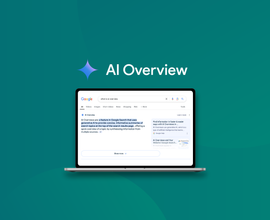11 Technical SEO Strategies to Increase Organic Traffic
There’s more to SEO than keywordKeyword
A keyword is what users write into a search engine when they want to find something specific.
Learn more analysis, copywriting, and click-through rates (CTR). Technical SEO is a critical piece of the organic marketing puzzle and can be a major factor when it comes to increasing organic traffic. But technical SEO strategies tend to get put on the back burner due to time constraints or lack of web development resources.
It’s time to expand your technical SEO expertise and get the help you’re after with this in-depth guide. Learn the fundamentals of technical SEO, why it’s important, and actionable tips you can use to improve your website performance and increase organic traffic. Access our downloadable technical SEO checklist—and share it with your team.
What is technical SEO?
Technical SEO refers to any technical website optimizations that make it easier for search engines to crawl, index, and render your site more effectively. Technical SEO optimizations help improve your organic rankingsRankings
Rankings in SEO refers to a website’s position in the search engine results page.
Learn more. Implementing technical SEO optimizations on your website occurs on the back-end but has a tremendous impact on user experienceUser Experience
User experience (or UX for short) is a term used to describe the experience a user has with a product.
Learn more and website performance. Where your content shines at center stage, technical SEO is all about the critical behind-the-scenes structural elements that define your website’s health and performance. This includes things like website architecture, page speed and size, structured dataStructured Data
Structured data is the term used to describe schema markup on websites. With the help of this code, search engines can understand the content of URLs more easily, resulting in enhanced results in the search engine results page known as rich results. Typical examples of this are ratings, events and much more. The Conductor glossary below contains everything you need to know about structured data.
Learn more, schema, and more.
Technical SEO Fundamentals
Before diving into our technical SEO hacks, let’s start with the technical SEO fundamentals you need to know.
Why is technical SEO important?
If your technical SEO isn’t implemented properly, your website will never rank high on SERPS—no matter how valuable your content is because poor technical site health most often equates to a poor user experience. This is why technical SEO should be a critical part of your website’s foundation. Without the right foundation, your content can’t be found, crawled, or indexed by search engines and your users won’t find it valuable. Your technical SEO doesn’t have to be perfect to rank, but the more you prioritize these technical elements, the easier you make it for search engines to access your content, increasing your chance to rank and drive organic traffic to your website.
While technical SEO focuses on making it easier for search engines to crawl your site, a technically-sound website also provides a better UX for your visitors, leading to increased traffic, more time spent on your website, and increased conversionConversion
Conversions are processes in online marketing that lead to a defined conclusion.
Learn more rates.
Prioritizing and monitoring technical SEO also prevents critical website issues from impacting your bottom line. Nearly 44% of enterprise organizations reported over three high-impact SEO incidents on the most important pages on their site in the last year, according to a recent study from ContentKing. The study found that 35% of these critical SEO incidents went unresolved for at least four weeks, and 79% of respondents reported an incident as costing more than $10K in revenue.
Making technical SEO a top priority—and monitoring the technical performance of your site in real-time—is the only way to consistently rank high in SERPs. It allows you to identify and resolve major site issues before revenue is impacted and provide the best possible UX for your customers.
What’s the difference between on-page SEO, off-page SEO, and technical SEO?
Search engineSearch Engine
A search engine is a website through which users can search internet content.
Learn more optimization (SEO) is often grouped into three core buckets: on-page SEO, off-page SEO, and technical SEO. Here’s a quick breakdown of the differences between these groups.
On-Page SEO
On-page SEO, or on-site SEO, refers to optimizing the different parts of your website that you have control over (which includes technical SEO, but more on that below) to more clearly tell search engines and users what your pages are about. It’s called on-page SEO because it’s visible on the front end of your site. Think: URL structure, keyword usage, anchor textAnchor Text
An anchor text is the text displayed on a website for a given link.
Learn more, and heading formatting.
Off-Page SEO
Off-page SEO, or off-site SEO, refers to anything outside of your website used to impact your rankings in SERPs. Primarily this focuses on backlinksBacklinks
Backlinks are links from outside domains that point to pages on your domain; essentially linking back from their domain to yours.
Learn more but also includes things like your connected social media pages and Google My BusinessGoogle My Business
Google My Business is a product by the Google search engine.
Learn more listings. The quality and quantity of backlinks to your website boost a page’s PageRank .
Technical SEO
And then there’s technical SEO. Although grouped separately, it’s easier to think of technical SEO as a subset of on-page SEO. On-page SEO focuses on the more visible elements, but it should start with technical improvements on the back-end. The primary differences between the two are that technical SEO focuses on the back-end elements of your site and it often requires more web development support and/or a CMS with an interface that anyone can update to implement correctly.
How technical is technical SEO?
Technical SEO doesn’t require in-depth programming knowledge, however, there are some aspects that require the support of your web development team. Proper alignment between your SEO and web development teams on technical SEO priorities is key to ensuring optimizations are actioned correctly and completed in a timely manner. Also, consider using an SEO platform to make identifying and implementing technical fixes easier. The following guide provides the core technical SEO expertise you need to get started—with more resources coming soon.
The only technical SEO checklist you need
Once you know the technical SEO strategies you need to help increase organic traffic to your site, it’s time to share the knowledge with your team and operationalize technical optimizations moving forward.
Download the guide for access to those 11 actionable technical SEO strategies, plus a bonus technical SEO checklist that maps Conductor features to every step in the process. Print the checklist, add it to your shared team resources, or tape it to your desk for easy access to winning technical SEO strategies.







